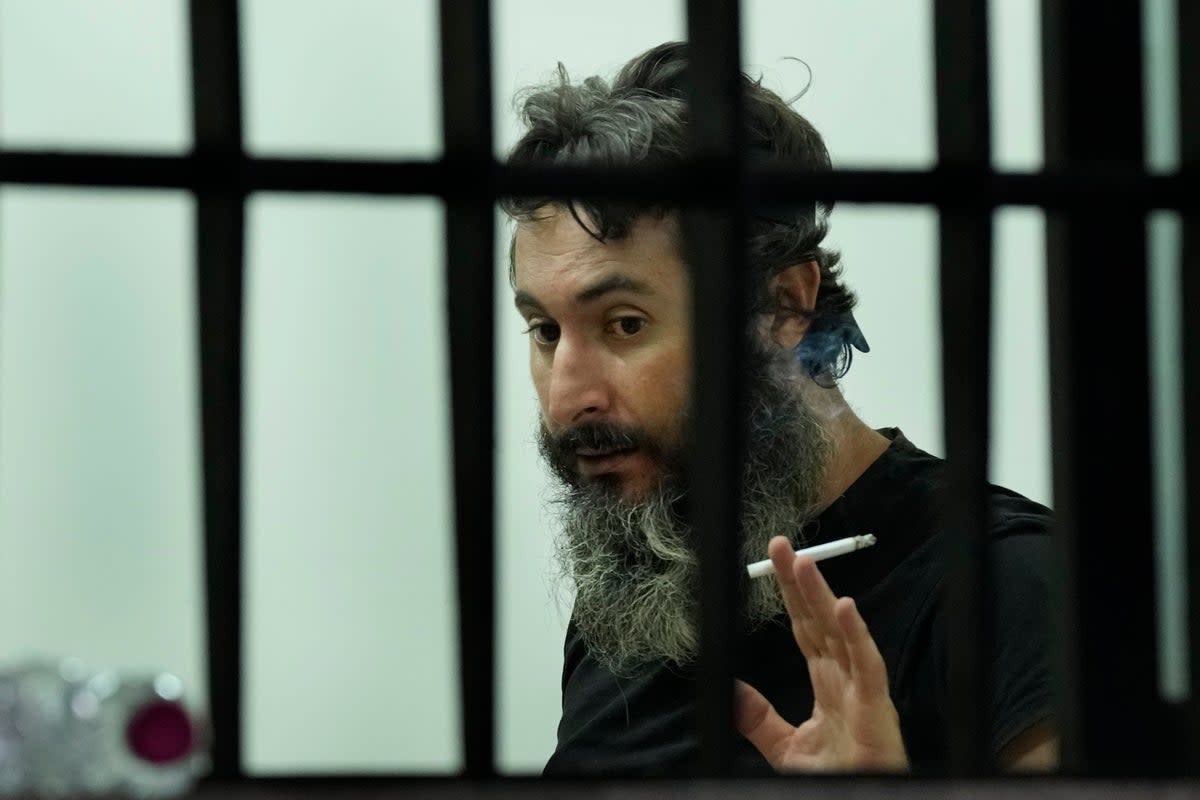Lebanon releases gunman who held up bank to demand access to trapped savings for ill father’s treatment

The Lebanese man who took people hostage in a bank, doused the place with petrol and threatened to kill himself if he was not permitted to access his trapped savings for his sick father’s medical treatment was released by authorities on Tuesday.
On 11 August, Bassam Al Sheikh Hussein, 42, was arrested after he held employees hostage for seven hours at the Federal Bank in Hamra, Beirut. He was released on Tuesday without any charges as the bank dropped its complaint.
When the judge was deciding the ruling on Tuesday, the road outside the court was blocked off as supporters of Mr Hussein gathered to show their solidarity, local media reported.
“We are blocking the streets, we want him out now,” Rami Ollaik, Mr Hussein’s lawyer told The National.
Mr Hussein had been on hunger strike since he was detained.
Mr Hussein, a food delivery driver, was trying to withdraw money from his own bank account to pay for his father’s hospital treatment. He reportedly had about £175,000 in savings but couldn’t withdraw any amount because of the strict withdrawal limits implemented by banks in Lebanon.
After seven hours of negotiations, Mr Hussein agreed to a settlement that would allow him to withdraw about £29,000 of his trapped savings. He released the hostages and walked out of the bank only then, following which he was detained.
After his release, photos of the food delivery driver with his sick father circulated on social media, garnering more support for the man.
Supporters of Bassam Al Sheikh Hussein, who held up a bank in Beirut demanding access to his trapped savings to pay for his father’s hospital treatment, blocked the Sami El Solh road and demanded his release. “We are blocking the streets, we want him out now,” his lawyer said. pic.twitter.com/zqq7Ogtv9V
— Jamie Prentis (@JamiePrentis) August 16, 2022
In late 2019, Lebanon’s commercial banks imposed their own capital controls – by setting withdrawal and transfer limits – after the country’s economic system crashed.
Three years after banks in the country began preventing the withdrawal of US dollars from bank accounts, citizens are now fearful a proposed capital controls law will make things worse.
Reports say that almost 75 per cent of the population in Lebanon has slipped into poverty after the banks’ capital controls and the currency – the Lebanese pound – has lost 90 per cent of its value.
Additional reporting by agencies

